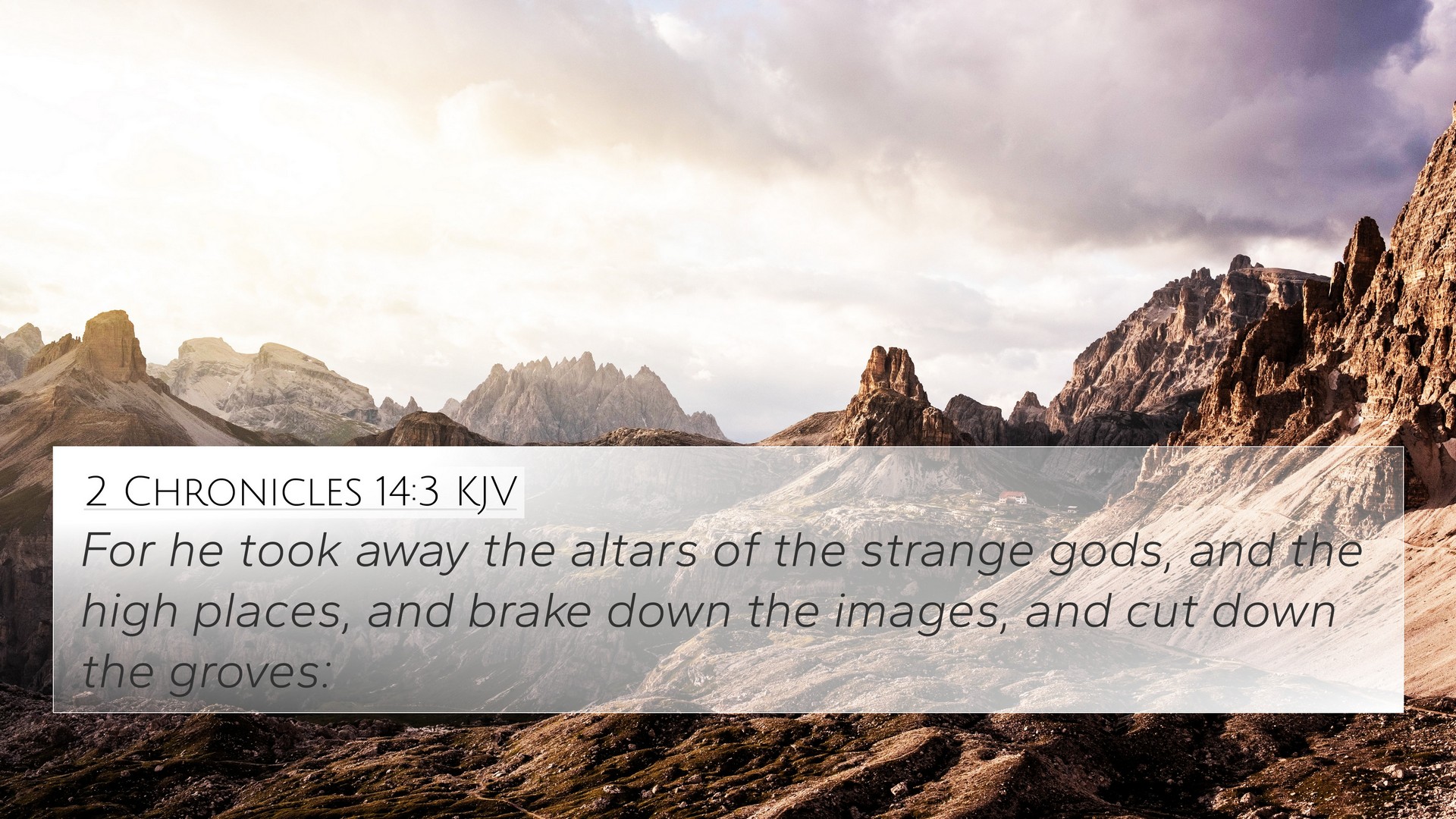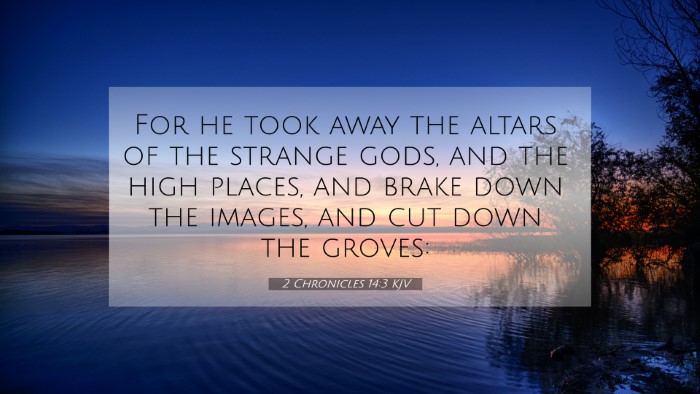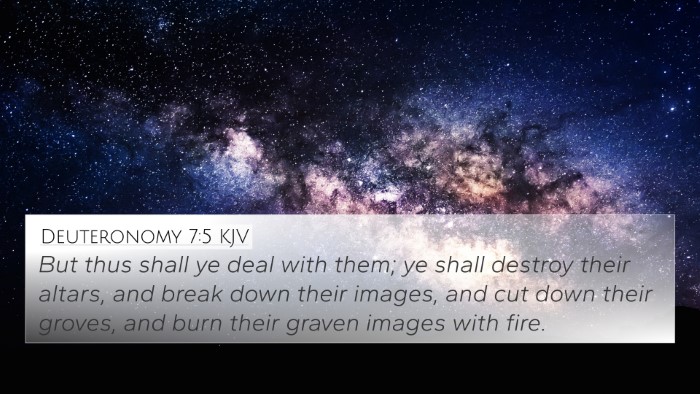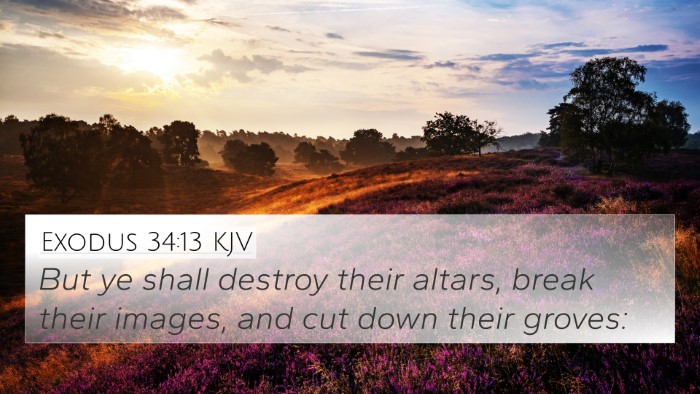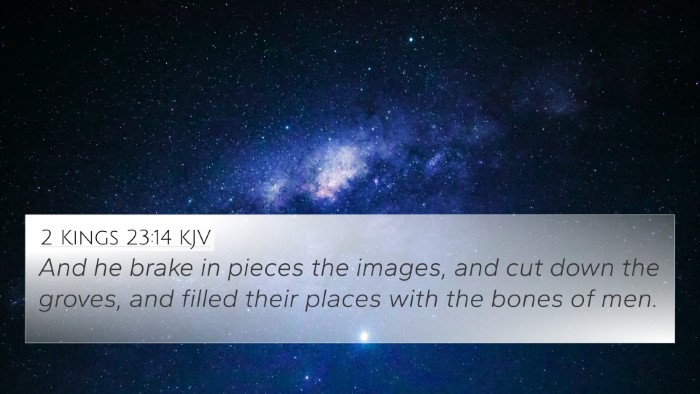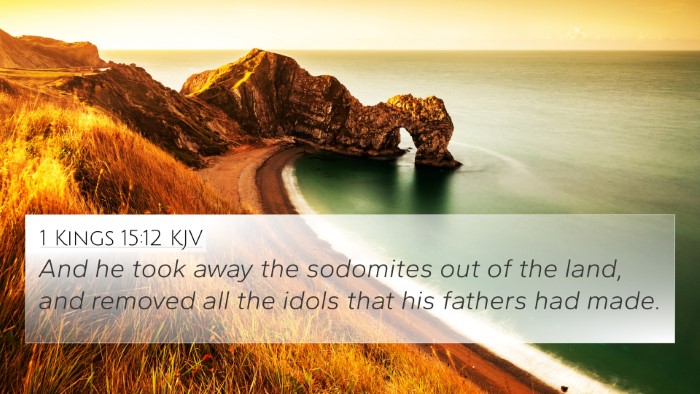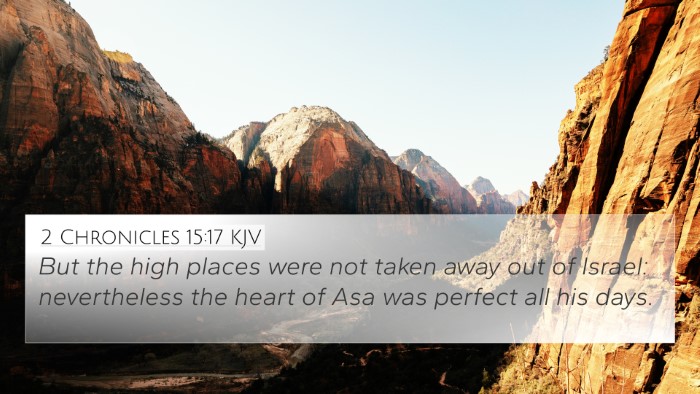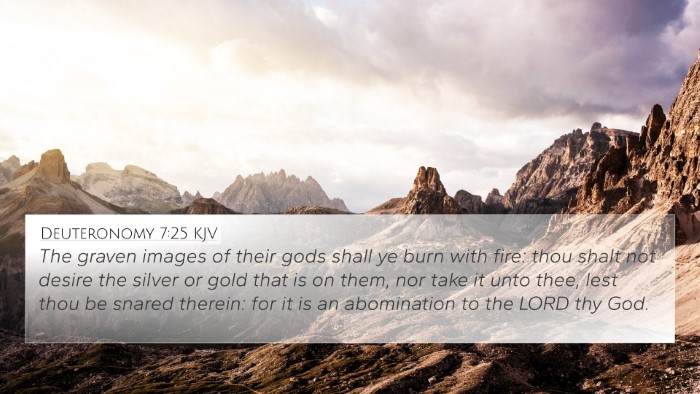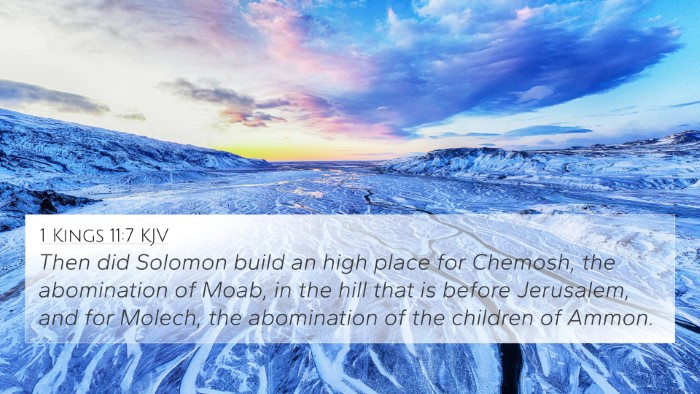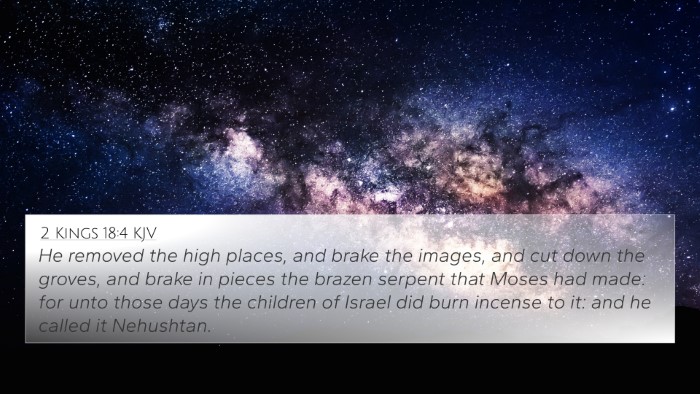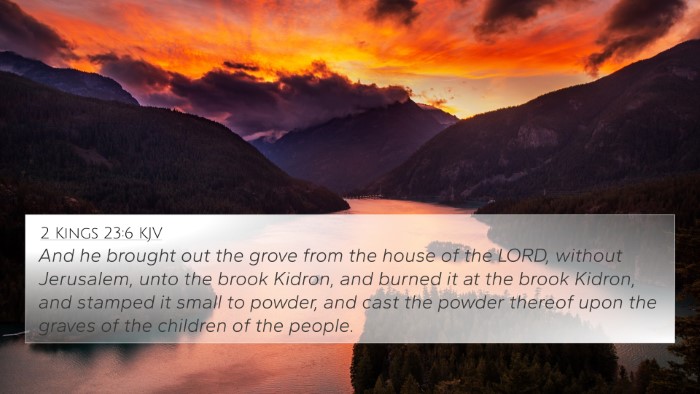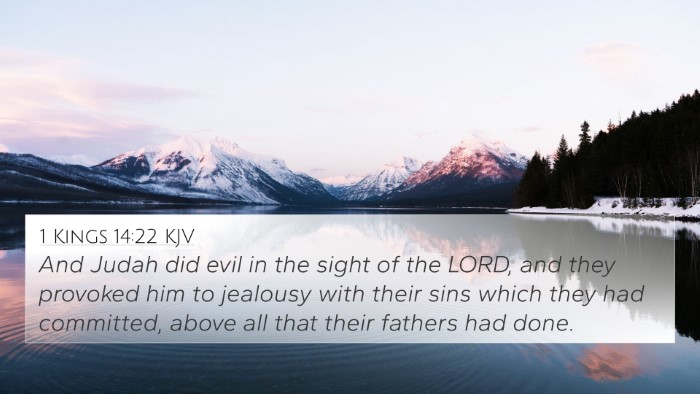Understanding 2 Chronicles 14:3
2 Chronicles 14:3 states: "For he took away the altars of the strange gods, and the high places, and broke down the images, and cut down the groves:" This verse highlights a significant moment in the reign of King Asa of Judah, signaling a major religious reform.
Summary of Key Themes
- The Importance of Reform: Asa’s actions represent a key theme of returning to proper worship and removing foreign influences from Israel.
- Destruction of Idolatry: The removal of altars and high places symbolizes a clear stance against idolatry.
- Restoration of True Worship: Asa’s reforms aim to restore genuine worship of Yahweh instead of pagan practices.
Commentary Insights
The commentaries provided by Matthew Henry, Adam Clarke, and Albert Barnes offer rich insights into the implications of this verse.
Matthew Henry's Commentary
Matthew Henry emphasizes Asa's commitment to abolishing idolatry. His actions reflect a leadership that is not only politically motivated but spiritually led. Asa understood the necessity of purifying worship and the impact of idolatrous practices on the people’s relationship with God.
Albert Barnes' Interpretation
Albert Barnes further delves into the symbolic significance of the removal of high places. He notes that these places were often associated with immoral practices and blended worship. By cutting down these groves and idols, Asa was restoring fidelity to God’s commandments and promoting national unity under Yahweh’s worship.
Adam Clarke's Insights
Adam Clarke notes that Asa’s reforms also signify a break from the past, contrasting the wickedness of previous kings and their acceptance of foreign gods. Clarke posits that Asa's actions would have fostered moral and spiritual awakening among his people, serving as an example of godly leadership.
Bible Verse Cross-References
Understanding 2 Chronicles 14:3 can be enriched through cross-referencing with the following related verses:
- 1 Kings 15:12-13: Where similar reforms are noted during Asa's reign.
- 2 Chronicles 15:8: Asa further's religious reforms after receiving a prophetic word.
- 2 Kings 18:4: King Hezekiah's reforms, which included the destruction of idolatrous practices.
- Deuteronomy 12:2-3: The commandment to destroy high places in the land.
- Jeremiah 7:18: Relevance of natural worship for foreign deities.
- 1 Corinthians 10:14: The exhortation to flee from idolatry.
- 2 Corinthians 6:16: The call for separation from idols in Christian living.
Thematic Bible Verse Connections
This verse also creates links between different biblical themes:
- Purity in Worship: Connecting with Romans 12:1 regarding offering our bodies as living sacrifices.
- Leadership and Responsibility: Related to James 3:1 where leaders are judged more strictly.
- The Struggle Against Idolatry: Reflected in Matthew 4:10, where Jesus quotes the Lord to reject all false deities.
Tools for Bible Cross-Referencing
For deeper studies into cross-referencing biblical texts, consider utilizing effective tools:
- Bible concordance, which lists scripture verses thematically.
- Bible cross-reference guide available in several study Bibles.
- Online databases and Bible software that provide comprehensive search features.
Conclusion
2 Chronicles 14:3 serves not only as a historical account of Asa's reign but also as a reminder of the importance of spiritual integrity and commitment against the backdrop of idolatry. By applying effective methods of scriptural cross-referencing, one can gain a more nuanced understanding of this verse's significance within the greater narrative of Scripture.
